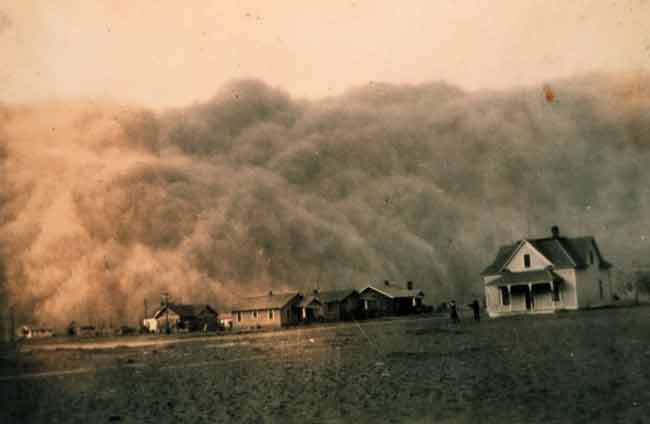Can Obama Save the Planet?

Get the world’s most fascinating discoveries delivered straight to your inbox.
You are now subscribed
Your newsletter sign-up was successful
Want to add more newsletters?

Delivered Daily
Daily Newsletter
Sign up for the latest discoveries, groundbreaking research and fascinating breakthroughs that impact you and the wider world direct to your inbox.

Once a week
Life's Little Mysteries
Feed your curiosity with an exclusive mystery every week, solved with science and delivered direct to your inbox before it's seen anywhere else.

Once a week
How It Works
Sign up to our free science & technology newsletter for your weekly fix of fascinating articles, quick quizzes, amazing images, and more

Delivered daily
Space.com Newsletter
Breaking space news, the latest updates on rocket launches, skywatching events and more!

Once a month
Watch This Space
Sign up to our monthly entertainment newsletter to keep up with all our coverage of the latest sci-fi and space movies, tv shows, games and books.

Once a week
Night Sky This Week
Discover this week's must-see night sky events, moon phases, and stunning astrophotos. Sign up for our skywatching newsletter and explore the universe with us!
Join the club
Get full access to premium articles, exclusive features and a growing list of member rewards.
The wintry wind that blew through Washington D.C. Tuesday brought change, ushering in what many see as a new era of respect for science that researchers and government officials around the world hope will result in a significant new effort to combat climate change.
Whether the task is worthy will continue to be debated by some. Whether it can be accomplished, politically or scientifically, remains to be seen. Two things are certain: If the majority of scientific projections are accurate, the stakes are very high — saving Earth from rising seas and mass extinctions — and the task monumental.
Barack Obama's inauguration comes none to soon in the eyes of many scientists, who have long felt that the previous administration was at times hostile or at best dismissive to science. Obama's pledge Tuesday to "restore science to its rightful place" rang like sweet music through the halls of science, not just among climate researchers but also those who favor more extensive stem cell research in efforts to grasp and possibly cure myriad diseases.
"It's a very exciting time," said David Barbeau, an assistant professor of geology at the University of South Carolina. Barbeau watched the inauguration from the British Rothera research station in Antarctica, where we learned today that things are indeed heating up. "There certainly is a feeling that this administration will have science pretty close to the forefront," Barbeau told Reuters.
Antarctica controversy
Climate researchers around the globe have long seethed that the United States rejected the Kyoto Protocol, signed by several other nations as a step toward limiting greenhouse gas emissions.
NASA researcher Jim Hansen, one of the most vocal supporters for the notion that climate change is a critical problem that must be battled now to prevent a runaway warming effect, said recently that the effort simply cannot be put off any longer. "We have only four years left for Obama to set an example to the rest of the world," Hansen said. "America must take the lead."
Get the world’s most fascinating discoveries delivered straight to your inbox.
Global warming is not disputed among the majority of climate scientists. It has long been disputed by vocal critics, among them a relative handful scientists. A key to the contrarian argument has been that Antarctica was cooling, so how could scientists claim that warming was a global phenomenon?
That argument appears now not to hold water.
A study out today, funded by the National Science Foundation, found that as a whole, Antarctica is indeed growing warmer, not cooler. Regional cooling caused by the depletion of upper-atmosphere ozone had masked the overall warming trend, scientists say.
Devil in the details
"With old friends and former foes, we will work tirelessly to lessen the nuclear threat, and roll back the specter of a warming planet," Obama said during his inaugural speech. But the pledge to clean up our collective act comes also with as-yet vague plans to reinvigorate the economy in part by investing in green technology on the scale of the Apollo project that landed men on the moon. One question some economists and other analysts are asking: Can we afford it?
The new president's plan includes spending $150 billion over a decade to create green jobs, with a goal of an 80-percent cut in greenhouse gas emissions by 2050.
"We will harness the sun and the winds and the soil to fuel our cars and run our factories," he said. "And we will transform our schools and colleges and universities to meet the demands of a new age. All this we can do. And all this we will do."
In a general sense, Americans at least for the moment are optimistic. A new Associated Press-Knowledge Networks poll finds 53 percent of those surveyed feel more optimistic about the country's future with Obama at the helm, with 15 percent feeling more pessimistic.
What do you think? Comments welcome below...
Robert Roy Britt is the Editorial Director of Imaginova. In this column, The Water Cooler, he takes a daily look at what people are talking about in the world of science and beyond.
Robert is an independent health and science journalist and writer based in Phoenix, Arizona. He is a former editor-in-chief of Live Science with over 20 years of experience as a reporter and editor. He has worked on websites such as Space.com and Tom's Guide, and is a contributor on Medium, covering how we age and how to optimize the mind and body through time. He has a journalism degree from Humboldt State University in California.
 Live Science Plus
Live Science Plus











